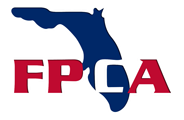COST-EFFECTIVE SOLUTIONS
 A variety of cost calculations are required on every project to determine what design approaches will generate the most advantages and allow budgets to be allocated most efficiently. Initial, in-ground costs are the most obvious expenses, but hidden and longer-term costs are becoming more significant as owners and designers study the budget impact of various specification choices.
A variety of cost calculations are required on every project to determine what design approaches will generate the most advantages and allow budgets to be allocated most efficiently. Initial, in-ground costs are the most obvious expenses, but hidden and longer-term costs are becoming more significant as owners and designers study the budget impact of various specification choices.
The key to finding the most efficient design is to realize that every system and decision impacts others. The goal is to ensure all products and systems work together without creating redundancy or inefficiencies.
Spending more of the budget to add insulation and other energy efficiencies, for instance, may allow the installation of smaller HVAC equipment that will save equipment expenditures. Using a design and materials that enclose the building quickly avoids winter slow downs and gets crews inside quicker, bringing the project on-line faster so revenues can be generated quicker.
Maintenance needs throughout the building’s life also must be considered. These expenses come from the operating budget rather than the construction budget, so they sometimes have not been considered when evaluating the building’s cost.
Durability, such that a building does not need to have its exterior refurbished or possibly replaced in 20 years, also has become more of a consideration. The entire life-cycle costs of a project are being determined, and each material choice must justify its value today, tomorrow, and many years from now.
Precast concrete structural and architectural systems help save cost in a variety of ways, from the design phases through construction and throughout the building’s service life.
